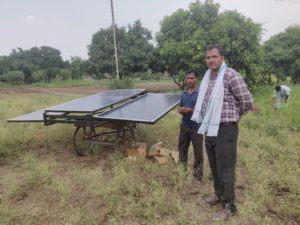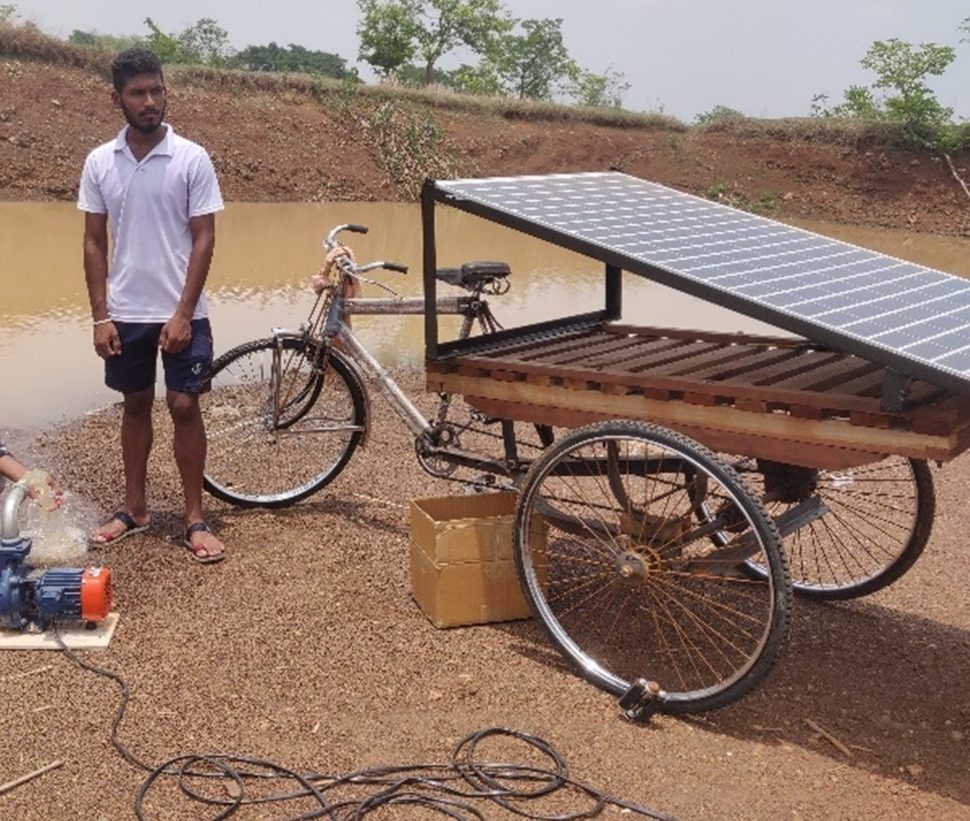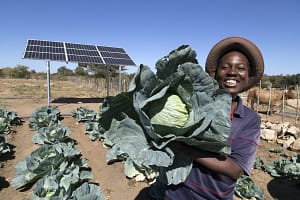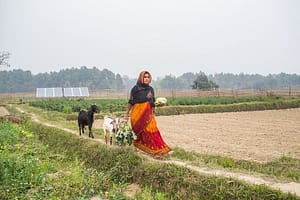By
Kalinga Renewable Energy Manufacturers Pvt. Limited (KARMA), a start-up from the Indian Institute of Technology (IIT) Bhubaneswar, innovates in mobile solar irrigation pumps for small and fragmented landholdings in rural Bihar and Odisha.

Image credit: SoLAR-SA, IWMI
Due to poor irrigation infrastructure and a lack of reliable electricity grids in rural Bihar, farmers depend on diesel pumps for irrigation. Rental charges for the diesel pumps – at INR 250/hour – are prohibitive for smallholders. It is also challenging to carry the pumps across their fragmented farmlands, especially for the female farmers.
Professional Assistance for Development Action (PRADAN), working to empower female farmer groups in Bihar, sought a technical solution to make irrigation affordable, transportable, and female-friendly. This was when PRADAN found the Kalinga Renewable Energy Manufacturers Pvt. Limited’s (KARMA) mobile solar irrigation pumps (SIPs). These are trolley-mounted, micro SIP setups that contain 2-3 panels and pumps within 0.5 HP to 1 HP. PRADAN partnered with KARMA to deploy twenty 1 HP mobile SIPs in Bihar.
According to Manish Pandey, an official of PRADAN, these small-sized mobile SIPs suit the context in Bihar. These are cheaper and deeper in outreach vis-a-vis the traditional fixed SIPs. The farmers were initially skeptical about the irrigation potential of the mobile SIPs. However, training and awareness about the system’s applicability have gradually made them enthusiastic about the portable technology. Pawan Kumar, a small farmer in the Binodpur village in Begusarai, Bihar, for example, finds the mobile SIP extremely cost- efficient for irrigating his two plots that lie spatially apart from each other.
According to Suraj Kumar at KARMA, the main idea is to make these SIPs more affordable. The traditional SIPs are fixed and are used less than 100 days a year. If the SIP can be mobile, they can be used by multiple farmers, and their costs are shared amongst the farmers.
KARMA’s Mobile Urja SIP is one of the innovative products that has undergone different iterations of development. The organization is also working on developing an innovative lightweight and flexible solar panel based on copper indium gallium selenide (CIGS) technology. To reduce the system’s weight, the controller is optimized by KARMA to improve the efficiency of the SIP, which requires a lower number of panels. They have developed two types of micro pumps: surface pumps with 50,000 LPD water discharge capacity and 20-25 ft. head, and submersible pumps of 22,000 LPD water discharge and 50ft. head.

Image credit: SoLAR-SA, IWMI










